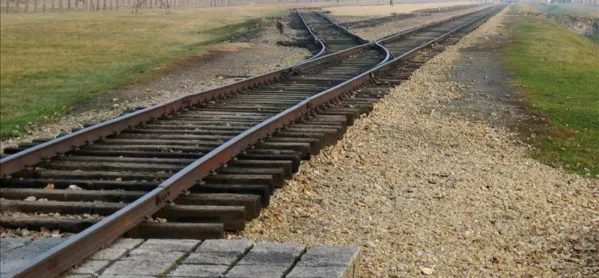Every secondary to have a Holocaust specialist

One teacher from every secondary in the country is to be offered a place on a two-day training course in Holocaust education. The aim is to ensure all schools have the specialist knowledge to teach the Holocaust sensitively.
The course forms part of a Pounds 1.5 million Holocaust education scheme being run by the Institute of Education in London.
Teachers will discuss the elements of the subject that they find challenging, then develop relevant lesson plans. Experts will suggest ways of tackling the subject.
Ten per cent of participating teachers will also be offered the opportunity to take a master’s degree module in Holocaust education.
Stuart Foster, director of the project, said: “There are increasing concerns in society about intolerance and racism. The BNP is coming to the forefront, and there’s increased anti-Semitism. Also, Holocaust survivors are passing with time, and their legacy and memories won’t be with us in the same way. We want to build a community of Holocaust educators, people who can share experience through good practice.”
The course forms part of a broader Holocaust education project, funded by the Government and the Pears Foundation charity. It is also supported by the Holocaust Education Trust, which earlier this year received Pounds 1.5m from the Government to send two sixth formers from every school to Auschwitz.
The new project will be launched this Sunday, the 70th anniversary of Kristallnacht, the night on which the systematic eradication of Jews in Nazi Germany began.
To mark the launch, Dr Foster has drawn up a national survey into how the Holocaust is taught. It tests teachers’ knowledge and looks at how they teach the subject: their definition of the word “Holocaust”, for example, as well as why they believe Holocaust education is important. It also considers other factors that might affect teachers’ approaches, such as their own ethnicity or that of their pupils.
Ruth-Anne Lenga, education consultant at the Jewish Museum, believes this is vital. “It’s on the curriculum, but some schools may cover it in a very short time, while others devote a whole term to it,” she said. “It could be that the emotiveness of the subject worries teachers, or it raises difficult moral challenges and questions. We want to ensure that there’s support.”
Dr Foster agrees: “There’s so much pressure on the curriculum. Do teachers feel more strongly about the Holocaust than other things? You’d like to think the answer is yes, but I wouldn’t prejudge that.”
www.hedpuk.org (active on Sunday)
COMMENT
Adi Bloom - TES social affairs reporter
What was the Holocaust? Was it:
a) the murder of victims including Jews, gypsies, homosexuals, Slavs and disabled people?
b) an attempt to murder every Jewish person in Europe, and less-targeted murder of other groups?
c) the systematic, state-sponsored murder of six million Jews by the Nazi regime and its collaborators? or d) any unspeakable suffering, persecution and atrocity?
Is there a right answer to this question? I’ve spent a long time staring at all four options - options being given to teachers taking part in the first national survey into Holocaust education - and still I have no idea.
In a few days, the country will collectively recite Laurence Binyon’s lines: “At the going down of the sun and in the morningWe will remember them.”
Yet, for all our annual promises never to forget, memory becomes cloudy. Events blur; ideas become distorted with the layers of meaning that time adds to them.
When I started secondary school 20 years ago, memories were keener, the layers of meaning fewer. They could be peeled back by visitors who addressed school assemblies in heavy Eastern European accents. Their stories seeped into our consciousness even as the horrors seemed unfathomable in our comfortable, middle-class world.
And then there were new victims. Is a life in Srebrenica or Kigali worth less than a life in Auschwitz? Of course not. But does that mean that Bosnia and Rwanda had holocausts, too?
There are fewer heavy-accented visitors now: age has wearied them. Today, teachers have to battle through the layers of meaning themselves.
History is easier when it is one person’s story: a single account that makes the universal personal.
But teaching about the Holocaust - a story of suffering and brutality that is distinct from other similar stories, but does not undermine them - can serve that same role if it is done properly. This is what the new Holocaust education project must ensure.
Keep reading for just £1 per month
You've reached your limit of free articles this month. Subscribe for £1 per month for three months and get:
- Unlimited access to all Tes magazine content
- Exclusive subscriber-only stories
- Award-winning email newsletters



